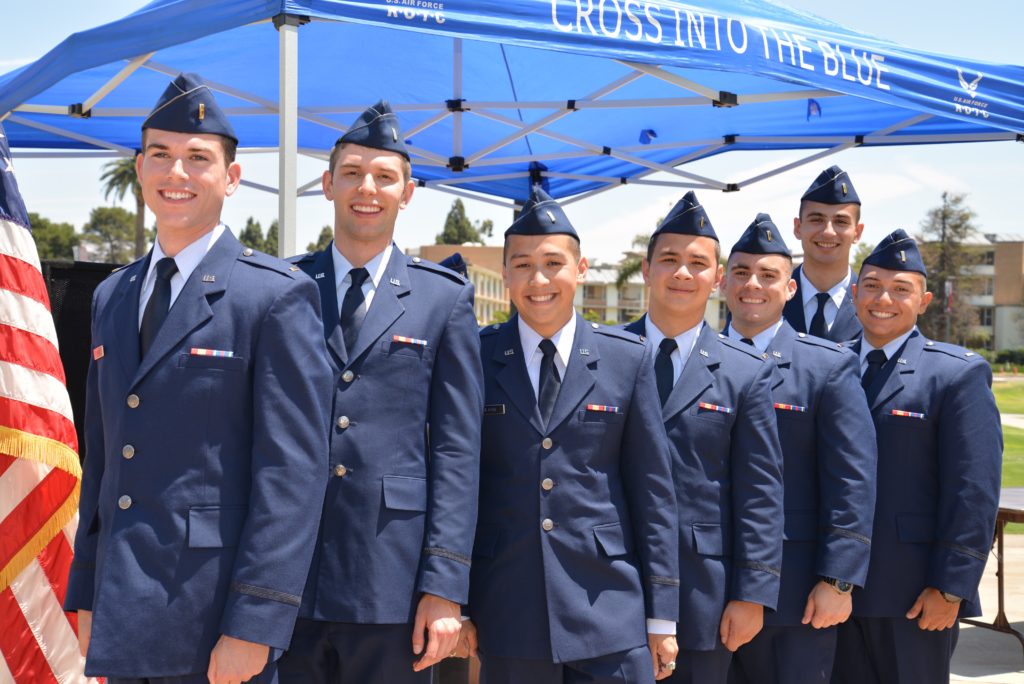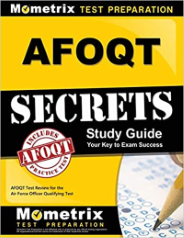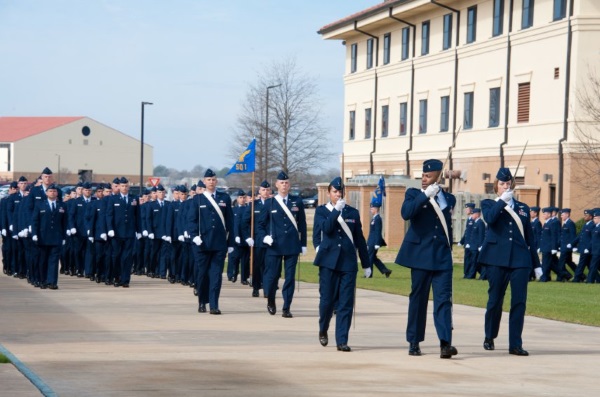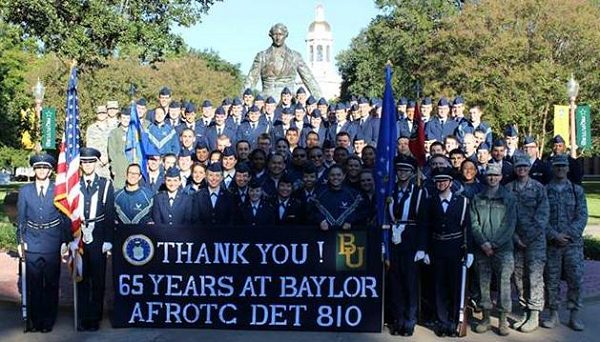The Air Force Officer Qualification Test (AFOQT) is similar to a college entrance exam, but it is tough enough that many test-takers wonder about AFOQT tips.
The test works to help the Air Force determine aptitudes related to specific career fields in the Air Force.
Also, this test helps narrow down good candidates for Officer Training School.
Furthermore, the ROTC programs use the test to award scholarships and qualify applicants who wish to earn a commission as an officer.
Related Article – 12 ASVAB Tips & Tricks To Help You Get The Best Score
Table of Contents
AFOQT Tip #1: Take a Practice Exam

Since the AFOQT is a substantially long test, it is vital to know where to focus your studies.
The first step is to take a practice exam to find out areas where you are weakest and focus on those first.
Practice tests not only tell you how well you know the content, but they also help with test anxiety.
Once you take your practice test, you can prioritize subjects and subject areas when you devise your study plan.
Plus, practice tests help you build the stamina you need to sit for a five-hour test, which is a critical part of preparing.
Looking To ACE The AFOQT?
 If so, we recommend you check out the AFOQT Secrets Study Guide over at Mometrix.com.
If so, we recommend you check out the AFOQT Secrets Study Guide over at Mometrix.com.
Their test prep study guide will fully prepare you for the test, and includes things like:
- Full-Length Practice Test
- Helpful Exam Strategies
- Step-by-Step Review
- Video Tutorials
- And much more.
If you’re looking to get the best score possible, we 100% recommend you check it out.
Click Here to learn more.
AFOQT Tip #2: Study in Sections for Subtests
Once you have your subjects prioritized, you can look at the subtests you need to work on.
For instance, if your weakest score is in mathematics, you would prioritize building those skills first.
Ideally, you chose your top three prioritized subtests and work out a study plan to work on those skills. Once you feel confident with any of those subtests, it is time to cycle a new one in as a new priority.
AFOQT Tip #3: Educated Guess Strategies
Educated guess strategies are critical for high-stakes tests.
Making an educated guess relies on your prior knowledge and how you dissect the question itself.
If you were only to guess, you have a 25 percent chance of getting the answer correct.
However, if you can eliminate at least two answer choices, your odds increase to 50 percent.
Your first step in making an educated guess is to evaluate what the question is actually asking.
Next, look at the answer choices to find the outliers. In other words, there is often at least one answer that is easy to eliminate.
Next, avoid generalizations. If you see answer choices with words like only, never, and always, they tend to lead to over-generalizations.
Carefully evaluate answer choices with words that make blanket statements and compare them to the question asked to see if you can eliminate them as choices.
Once you narrow down as many answer choices as possible, chose what you feel is the best answer.
AFOQT Tip #4: Time Management
If you are lucky enough to have plenty of time to build a strategy, your time management is easier.
Start planning as soon as possible.
If you took the practice test to get a baseline of where you are at with the tested skills, you know your weakest areas.
You already prioritized your skills according to the subtests, but now you need to set a plan to see improvement on those skills.
Studying for long periods is not advised.
If you can rotate your schedule on your three priority sub-test study sessions, you can hit each one of them twice a week.
Plan to study 2-3 hours a day, five days a week. Ideally, you can divide your studying of two subjects at a time and rotate to give your brain a break.
It is essential to not overstudy because the brain needs time to process new information, so it becomes a part of your memory.
Your weakest subtest should always take priority in your study plan, however.
Also, it is helpful to break up the goal of two to three hours a day into sections. For instance, you can get a tremendous amount of studying done in the time you spend waiting in line.
There are online and mobile-friendly study sites and smartphone apps that help you make the most of your downtime.
If you find you have less time to study and a lot of ground to cover, first focus on filling your downtime with short bursts of studying.
Cramming for tests rarely leads to long-term memory retention.
If you have less time, your strategy should include the subtests you struggle with the most, as well as a study schedule that makes sense.
AFOQT Tip #5: Be Strategic with Your Strengths
Another AFOQT tip for increasing your score on the AFOQT is to play to your strengths and use them as leverage.
You took the time to decide your weakest subtest subjects, but by brushing up on minor skills in subtests, you can increase your score, as well.
For instance, if you traditionally do well with verbal reasoning but scored low on a practice test, you can increase your score by dedicating a study session or two that quickly elevates your score.
AFOQT Tip #6: Circle Back Around to another Practice Exam
Once you work through an entire study cycle, it is time to take another practice test.
Ideally, after taking another practice test, you can cycle out areas of study and replace them with new areas.
Every time you cycle through and take another practice test, your areas of focus become narrower.
As you continue to study in this manner, you will enjoy success.
As we mentioned above, the Mometrix AFOQT Study Secrets is a very helpful study guide that includes a full-length practice test.
Click Here to check it out.
AFOQT Tip #7: Read and Reread the Question-and-Answer Choices
Before answering a question or eliminating answer choices, you must be sure you understand the question itself.
As you read, notice essential words in the question, especially notice the negative words.
For instance, the question may want you to choose an answer that is NOT true.
You might try to reframe the question in your own words to verify you fully understand the question itself.
From there, try to answer the question without evaluating the answer choices.
At this point, you are in a prime position to begin eliminating choices and making educated guesses, if necessary.
Related Article – ASVAB Scores and the Military Jobs that Qualify
Frequently Asked Questions (FAQ)

We address frequently asked questions regarding the AFOQT here.
When Is It Taken?
If you are in an ROTC program at your college, you will take this test your sophomore year.
If you are in college already, consider taking the AFOQT your sophomore year, as well.
How many times can you take the AFOQT?
You can take the AFOQT twice.
Also, the highest score between the two opportunities counts as your final score.
Lastly, you must wait at least 150 days between each test.
How Long Is the Test?
The AFOQT has 550 questions within the 12 subtests.
Also, you have five hours to complete the test.
How Does the AFOQT Break Down?
There are several subtests in the AFOQT:
Verbal Analogies
With the verbal analogies subtest, you will show you understand the relationships between words.
Having a good handle on the English language is necessary to do well.
Self-Description Inventory
The self-description subtest is a personality test.
You will not see this section as a part of your overall score.
Reading Comprehension
The reading comprehension subtest measures your ability to read and understand written text.
Arithmetic Reasoning
Arithmetic reasoning is the ability to use math to solve a variety of problems.
This subtest includes word problems, as well.
Math Knowledge
The math knowledge subtests address the principles and mathematical concepts.
You will want a good understanding of algebraic rules to find success with this subtest.
Instrument Comprehension
To do well in this subtest, you must know airplane flight instruments.
Table Reading
The table reading subtest measures how well you can quickly read X and Y access tables.
Block Counting
Block counting measures your spatial awareness.
You will see three-dimensional blocks and answer questions related to the blocks.
Word Knowledge
The word knowledge subtest measures your knowledge of the meaning of words.
It helps to work to increase your vocabulary when you study.
Aviation Information
If you hope to go into a career in aviation, this subtest is vital because it tests your aviation knowledge.
General Science
The subtest of general science measures your knowledge over a broad area of science.
For instance, you can expect questions related to natural sciences to physics.
Hidden Figures
The hidden figures subtest reveals how well you can see a simple figure in an otherwise complex drawing.
AFOQT Scores Explained

The subtests all compile one score for the AFOQT.
Also, each composite of the AFOQT tests different abilities and knowledge to determine success in training programs.
Pilot
The pilot composite determines the level of knowledge and aptitude for pilot training.
Navigator-Technical
The Navigator composite measures the abilities needed to complete navigator training.
There is some overlap with the pilot composite, as well.
Verbal, Quantitative
The verbal composite determines the knowledge and abilities to reason and recognizes relationships between words.
Academic Aptitude
The academic aptitude composite looks at verbal and quantitative knowledge.
This composite is a combination of the subtests that make up the verbal composite.
Quantitative
The quantitative composite shares subtests with the Navigator composite.
Also, it reassures your ability to use arithmetic and math.
Related Article – ASVAB Scores for Air Force Jobs
Conclusion
Since the APOQT is essential for those who have specific career aspirations in the Air Force, doing well is critical.
Therefore, having AFOQT tips for studying is helpful.
With some specific study strategies and AFOQT tips, you can increase your odds of the score you desire.
By taking a practice test and cycling studying focusing on areas of need, you are off to a great start.
Also, setting a studying schedule that is not too overwhelming is ideal.
Once you work through your areas of focus, you can take another practice test to refine what areas you still need to study.
Also, other test–taking strategies such as being careful with the question itself and making educated guesses are likely to increase your score, as well.
References:
- Ikon Pass Military Discount: Learn How To Save Big - January 31, 2025
- RTIC Military Discount: Find Out How To Save Big on Gear - January 30, 2025
- Traeger Military Discount: Learn How To Save Big on Smokers - January 28, 2025





